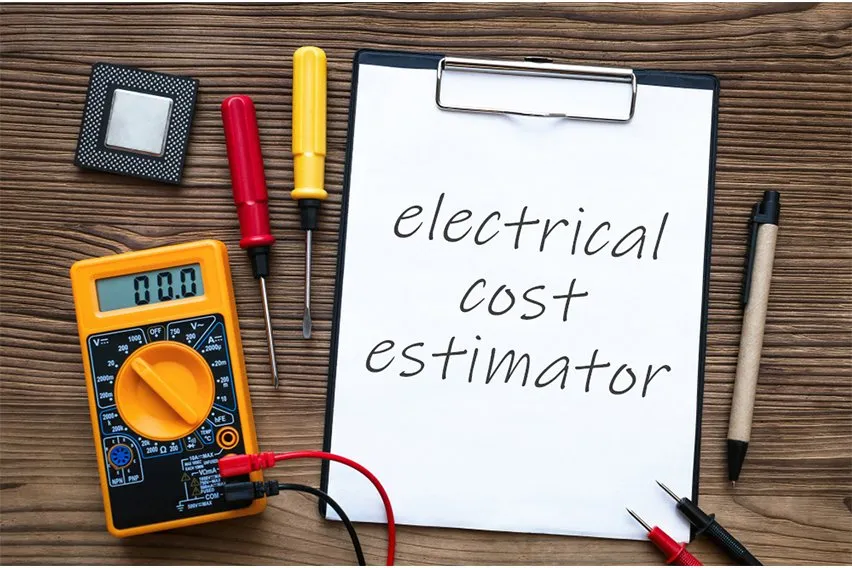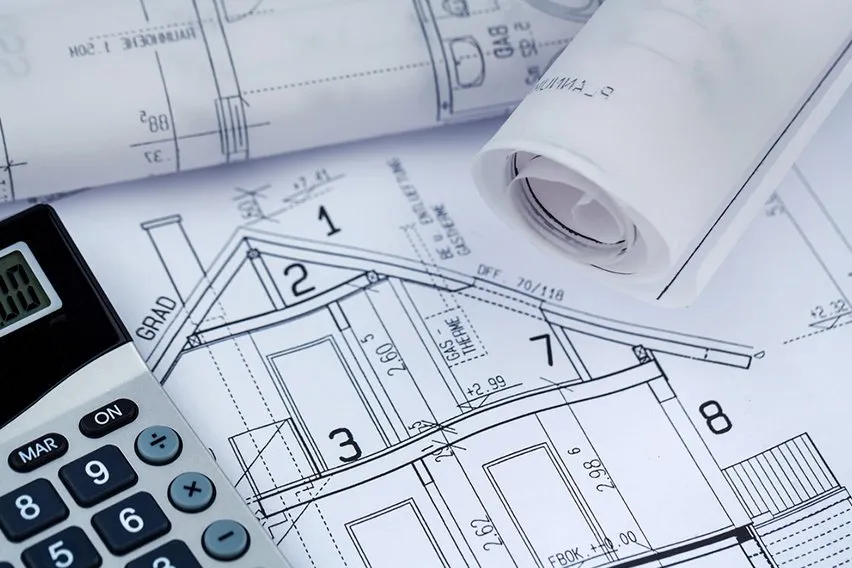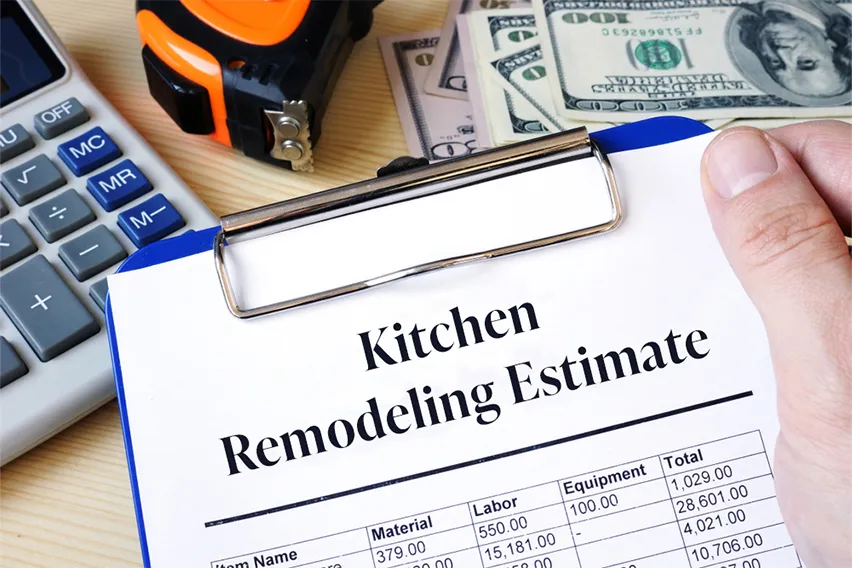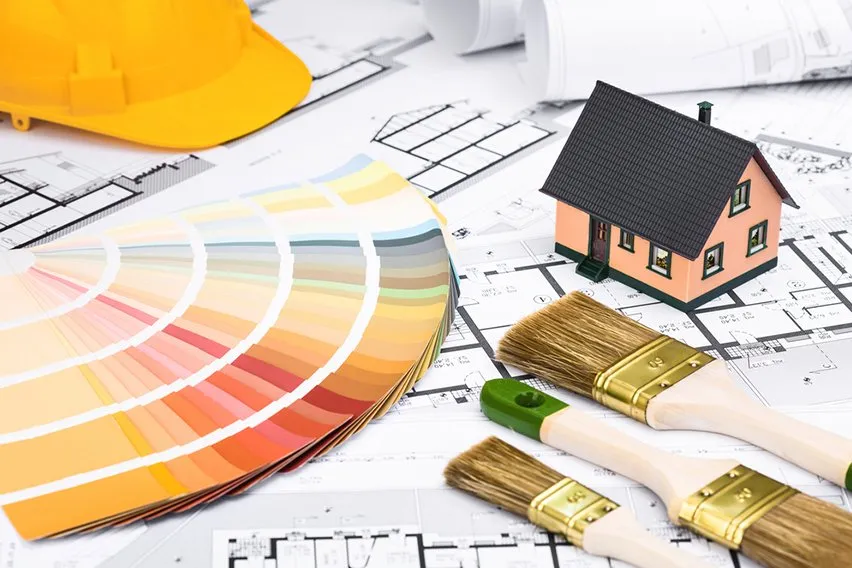Electrical Cost Estimator Work Guide

Being able to accurately estimate the total project costs can be a difficult process. And a big part of that is electrical estimating. Plus, it helps you determine how long a project could take and all the different materials needed.
The key is balancing between estimating too low and too high. You want to estimate electrical costs taking into account different aspects of the project. This can include things such as material costs, labor costs and any equipment rentals.
You also want to factor in any risks and the profit you will make from a project. Here’s what you need to know when it comes to an electrical cost estimator work guide.
Here’s What We’ll Cover:
Things to Consider for Your Estimate
Why Do You Need to Estimate?
Calculating an accurate estimate is an important part of any project. An estimate allows you to forecast exactly what it will cost to complete a project. Without it, you could find yourself overspending or taking longer to finish.
You might need to order some parts to install. And the costs of different materials like wiring and conduits can change throughout the year. By estimating these costs, you can make sure that you stay within budget and complete the project successfully.

Things to Consider for Your Estimate
Some projects will require different materials and labor costs than others. But it’s important to consider a number of factors when doing your electrical estimate. They can be time-consuming to complete, but if you have been in business for a while you can use historical data to help.
Here are a few main things to consider.
Overhead Costs
Incorporating your overhead costs into your estimate are some of the most important details to consider. They include all of the extra costs that are outside of the specific project itself. Things like accounting fees, insurance or legal fees and utilities.
Every project is going to have some sort of overhead costs. It can be common for a company to estimate overhead costs based on a percentage of the overall budget. But again, it all depends on the relevant needs of each project.
Consider Takeoffs
Estimating the quantity of the items that you will need for a project is considered takeoffs. Basically, you take a look at the specific items that you need to complete a job and the number of items needed. You want to make sure that enough materials are ordered to do everything you need so there won’t be any delays once the job starts.
Take Into Account Labor Costs
How long is the project going to take? And how many electrical contractors do you need to stay within the job cost? Estimating labor costs accurately can save you a ton of money.
There are a few different ways you can estimate your actual costs. You can use data from past projects to determine the number of hours it will take to complete. From here you can determine the number of workers you will need to hire.
You could also use different formulas or methods to figure out how long it would take to install each component. You would do this by figuring out how many workers are needed to install each of those components. This could be a more accurate way of estimating if you have a larger operation.

Other Things to Consider in Your Estimate
Depending on the scope of the electrical job, these are some more costs to consider, including electricity cost and permit cost.
- The cost of switches and installing new wiring
- The cost of replacing or installing an electrical receptacle
- The cost of replacing or upgrading an electrical panel
- The cost of installing smart home automation systems
There are various estimating software tools that can help you do this with just one click. However, it is important to select the right tool in order to get an accurate estimation. We have an article on the Best Electrical Estimating Software, where we have compiled the industry’s top software that will help you streamline the estimation process.
Key Takeaways
There’s a lot that can go into an electrical estimating process. But estimating is an important part of any project process. They can get used for accurately forecasting a budget, winning project bids and they can get tailored on an individual basis.
You can make sure that you have everything that you need to successfully complete your project. By doing this, you can also make sure that you aren’t overspending or contributing to any delays.
Take some time to break down all the overhead costs and labor costs for your project. Think of any marketing expenses, legal fees or taxes that might come up. And consider the time it will take to complete your project and how many contractors you need to do so. Once you have all that information, you can create an accurate electrical cost estimate.
Did you enjoy reading this guide? Head over to our resource hub for more content!
RELATED ARTICLES

 4 Top Construction Estimator App for 2025
4 Top Construction Estimator App for 2025 What Is a Change Order Process in Construction & How To Manage One
What Is a Change Order Process in Construction & How To Manage One How Much Does It Cost to Build a Townhouse
How Much Does It Cost to Build a Townhouse How Much Does Kitchen Remodeling Estimate: Cost Calculator
How Much Does Kitchen Remodeling Estimate: Cost Calculator 5 Best Remodeling Estimating Software
5 Best Remodeling Estimating Software How To Bid A Paint Job: A Complete Estimation and Bidding Guide
How To Bid A Paint Job: A Complete Estimation and Bidding Guide